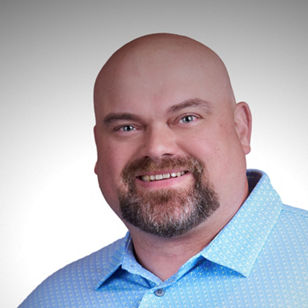Reverse Mortgage Requirements
Beware: They’re complex (and expensive).
Article published: October 25, 2024

Know the risks of a reverse mortgage
If you or someone you love is considering a reverse mortgage, we highly recommend connecting with a planner first — it’s free to talk.
Never make a mortgage payment again! Get a large wad of cash and stay in your home as long as you want! You’ve probably heard sales pitches like these from celebrities in late-night television commercials. They’re touting reverse mortgages. It’s easy to see why reverse mortgages might appeal to some older homeowners.
A reverse mortgage could increase an older homeowner’s retirement income. That sounds like a great deal, but perhaps not so much when you look into the fine print.
Ěý
What is a reverse mortgage?
A reverse mortgage is a loan on your house that lets you tap into your home’s equity. Like a cash advance, a lender gives you money, either a lump sum, a line of credit, or monthly draws, and you eventually have to repay it with interest.
Repayment is triggered when you die, sell the house, or move out for at least 12 months. The most popular type of reverse mortgage is the Home Equity Conversion Mortgage (HECM), which is insured by the Federal Housing Administration (FHA).
Ěý
Reverse Mortgage Rules and Qualifications
To qualify for a reverse mortgage, you must meet several reverse mortgage requirements. First, you must be at least 62 years old. The property must be your primary residence, meaning you live there for the majority of the year. You also need to have significant equity in your home, typically at least 50%.
This requirement ensures that there is enough value in the home to cover the loan amount and associated costs. So, for example, if your home is worth $600,000, you should have at least $300,000 in equity to meet the 50% minimum equity for a reverse mortgage.
Additionally, you must meet with a counselor from an independent, government-approved housing counseling agency who is required to explain the loan’s costs and possible alternatives.
Ěý
What Disqualifies You from a Reverse Mortgage?
Several factors can disqualify you from obtaining a reverse mortgage. These include not meeting the age requirement, not having sufficient equity in your home, and not using the home as your primary residence. Additionally, if you are delinquent on federal debt or fail to meet financial obligations such as property taxes and homeowners’ insurance, you may be disqualified.
Ěý
Additional Reverse Mortgage Requirements
In addition to the age and equity requirements, there are other key eligibility criteria for a reverse mortgage. You must own the home outright or have a low mortgage balance that can be paid off at closing with proceeds from the reverse loan. The home must be a single-family home, a two-to-four unit home with one unit occupied by the borrower, or a HUD-approved condominium. You must also maintain the home and keep up with property taxes and insurance.
Ěý
Costs and Fees
We at ĂŰѨĘÓƵ are generally not big fans of reverse mortgages. Here are some specific reasons why we’re not fond of this complicated product:
Fees. Lenders origination fees range between 1% and 2% with a cap of $6,000. You’ll also pay closing costs, such as title insurance and recording fees, likely running several thousand dollars. Next, you’ll pay required mortgage insurance premiums. Finally, the lender may charge a monthly service fee of up to $35.
Interest Rate. The interest rate on a reverse mortgage is often higher than that of a traditional mortgage. This can result in higher overall borrowing costs compared to conventional loans.
You owe more over time. As you receive payments from your reverse mortgage, the interest is added to the loan balance each month. This means the total amount you owe increases over time, as the interest compounds.
You must keep paying the usual bills. Because you retain the title to your home in a reverse mortgage, you’re still responsible for property taxes, insurance, utilities, fuel, maintenance, and other expenses. The FHA might also require you to pay for a yearly home inspection.
Ěý
Risks and Considerations
Going to a nursing home could mean losing your home. Reverse mortgages must be paid off if you leave your home for more than 12 months. But even if you move out for a few months, say, to a nursing home or a rehabilitation center after an injury, you must pay back the lender all the money you’ve received plus interest.
For many seniors, that means selling the home. Thus, when they leave the rehab center, they have no home to return to. And because they owe so much to the lender, they often receive none of the proceeds from the sale of the home.
Your home can be foreclosed. If you fail to pay property taxes, insurance, and homeowner association dues, or if you fail to maintain the home according to FHA standards, you could lose your home to foreclosure.
Spouses can end up homeless. This could happen if one spouse moves to a nursing home or dies. At that point, the other spouse must pay off the reverse mortgage in full or lose the property to the lender.
The latter scenario is one reason we believe a reverse mortgage is more appropriate for a single or widowed person than for a married couple. Another reason is that the loss of one spouse’s income could cause the other to be unable to afford to stay in the house.
A reverse mortgage is also more appropriate for older people, perhaps those who are around 80 years old. That’s because they are less likely to be impacted if inflation rises during the term of the mortgage.
Ěý
Get professional financial advice
Clearly, reverse mortgages aren’t for everyone. Although you may not be considering one, what about your parents, older relatives, or friends? If you or someone you know is thinking about a reverse mortgage, an ĂŰѨĘÓƵ planner can talk through the financial planning strategies and help make the best decision.
Ěý
Reverse mortgage requirements: Your checklist
- To qualify for a reverse mortgage, you generally need to be at least 62 years old.
- Your home must serve as your primary residence, meaning you live there most of the year.
- You should either fully own your home or have a small mortgage balance. If you still have a mortgage, you must be able to pay it off at the time of closing, using either your own funds or the proceeds from the reverse mortgage.
- You must not have any outstanding federal debts, such as unpaid federal income taxes or student loans. However, you can use the reverse mortgage funds to settle these debts.
- You need to have sufficient funds or agree to allocate part of the reverse mortgage proceeds to cover ongoing property expenses, including taxes, insurance, and maintenance.
- Your home must be in good condition. If it doesn’t meet the required standards, the lender will specify the necessary repairs before you can proceed with the reverse mortgage.
- You are required to undergo counseling from a HUD-approved agency to discuss your eligibility, the financial impact of the loan, and other available options.
Ěý
The above examples are for illustrative purposes only and do not fully take into account expenses such as property taxes or homeowner's insurance. Taking equity out of your home involves risk, particularly in slow or declining markets. This could result in some homeowners owing more money than their home is worth.Ěý
Neither ĂŰѨĘÓƵ nor its affiliates offer tax or legal advice. Interested parties are strongly encouraged to seek advice from your qualified tax and/or legal professionals to help determine the best options for your particular circumstances.
Certain services provided on an educational and guidance basis only.
AM3935966



